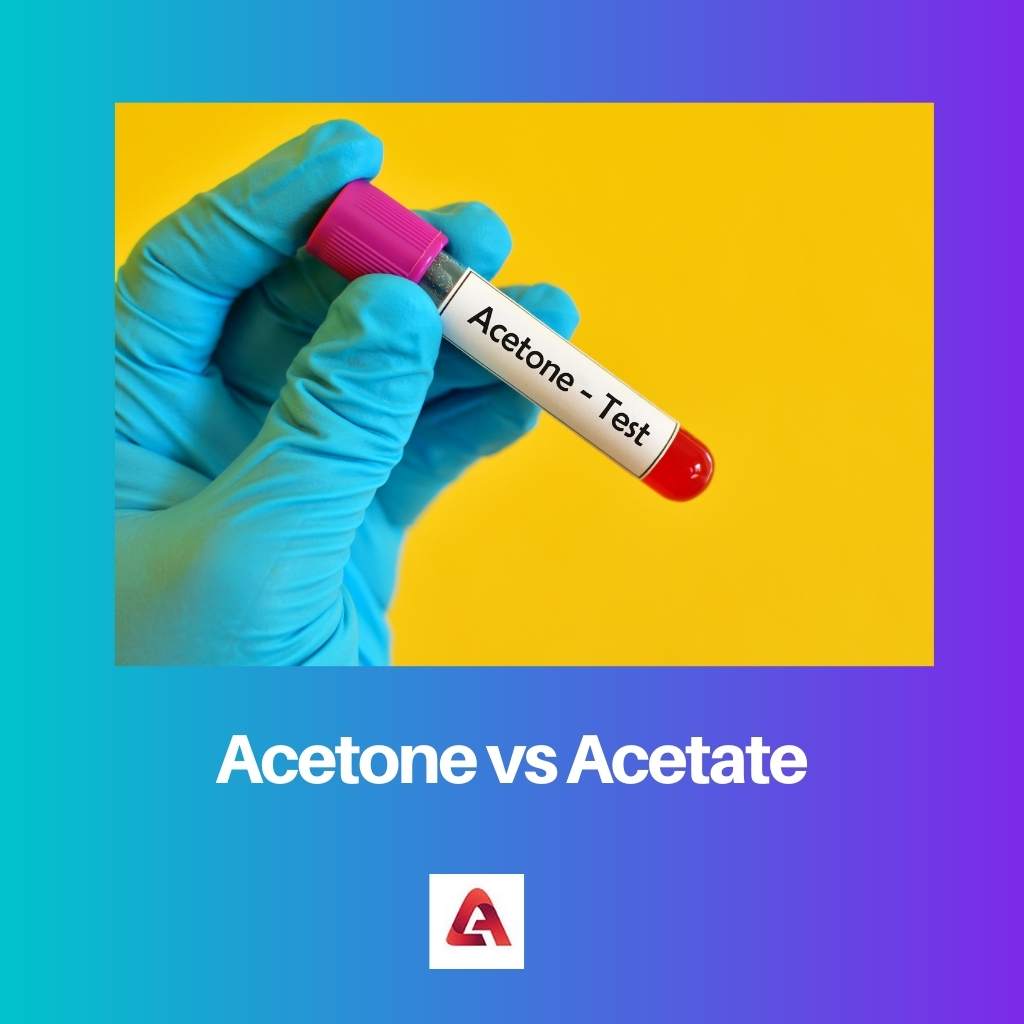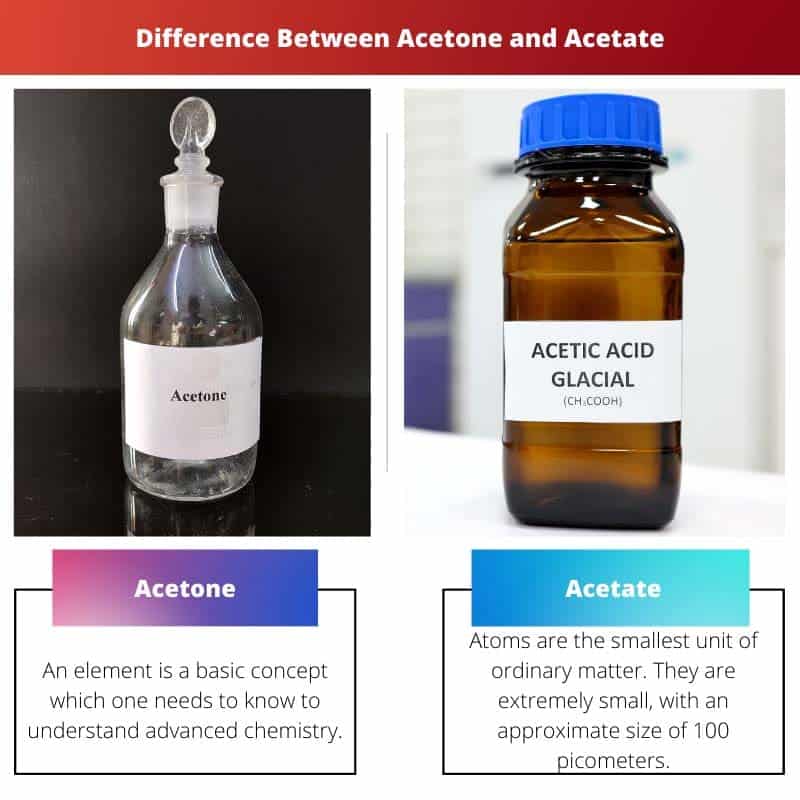Various types of organic compounds or their derivatives are found on this earth. Some occur naturally, whereas some are synthesized in the laboratory. These organic compounds are studied in detail under organic chemistry.
Key Takeaways
- Acetone is a colorless, volatile, and flammable liquid commonly used as a solvent and in nail polish removers. At the same time, Acetate is a salt or ester of acetic acid used in textiles, food, and pharmaceuticals.
- Acetone has a characteristic odor and is highly reactive, while Acetate is relatively stable and does not have a strong odor.
- Acetone is a natural byproduct of the body’s metabolism, while Acetate is found in various foods and is also produced by the body during metabolism.
Acetone vs. Acetate
Acetone, also known as propanone, is a colorless, volatile, flammable liquid with a characteristic odor, and a simple ketone with the formula C3H6O. Acetate refers to a salt or ester derived from acetic acid and is a compound that contains the acetate ion (CH3COO-) combined with a metal ion.

Acetone is a ketone having the molecular formula CH3COCH3. The molecular weight of acetone is 58.07 grams per mol. Acetone belongs to the family of ketones.
Acetate has a molecular formula of CH3COO- and it’s an anion. 59.044 grams per mole is the molecular weight of acetate. Acetate belongs to the family of anions.
Comparison Table
| Parameters of Comparison | Acetone | Acetate |
|---|---|---|
| Definition | Acetone is a ketone having the molecular formula CH3COCH3. | Acetate has a molecular formula of CH3COO- and it’s an anion. |
| Molecular weight | The molecular weight of acetone is 58.07 grams per mol. | 59.044 grams per mole is the molecular weight of acetate. |
| Type of molecule | Acetone belongs to the family of ketones. | Acetate belongs to the family of anions. |
| Number of -CH3 groups | Two methyl groups are present. | One methyl group is present. |
| Number of oxygen atoms | One oxygen atom is present. | Two oxygen atoms are present. |
| Formation in industry | Industrially, acetone is manufactured by the method of cumene hydroperoxide. | When a proton comes out of acetic acid, acetate ions are formed. |
| Formation in nature | Through the process of catabolism of fats in humans, acetone is formed. | Organisms such as methanogenic bacteria are capable of making acetate inside their cells. |
| Odour | The odor of acetone is similar to fruits. | Acetate smells like glue or gives a sweet odor. |
| Uses | Acetone is used in lacquers, nail paint remover, and stripping paint. | Acetate removes paint or varnish from surfaces, electroplating and manufacturing photographic film. |
What is Acetone?
Acetone is a flammable, colorless, volatile liquid at 37.5 degrees Celcius at room temperature. Also, it is the smallest ketone in the family of ketones. Ketone is used in industries and household needs.
Through the process of catabolism of fats in humans, acetone is formed. Later it results in the manufacture and production of molecules such as ketones. Acetone is a substance with a fruity smell, and it is also flammable.

What is Acetate?
The ester is formed when acetate ions are combined with an alkyl group. The salts formed contain acetic acid with various other substances such as non-metallic, metallic, or another base, and alkaline earthy.
Some organisms, such as methanogenic bacteria, can make acetate inside their cells. Acetate smells like glue or gives a sweet odor. Acetate removes paint or varnish from surfaces, electroplating and manufacturing photographic film.

Main Differences Between Acetone and Acetate
- The odor of acetone is similar to fruits. On the other hand, acetate smells like glue or gives a sweet odor.
- Acetone is used in lacquers, nail paint remover, and stripping paint. However, acetate is used to remove paint or varnish from surfaces, electroplating, and manufacture photographic film.

- https://link.springer.com/article/10.1007/s10953-013-0010-1
- https://www.sciencedirect.com/science/article/pii/S0009250903004469

I can’t believe I’m learning so much from this article
This article has taught me so much more about organic compounds
I find it very insightful
It’s great to expand our knowledge through these articles
It’s amazing how these two compounds differ from each other
The article really highlights their distinction
Another great informative article, I love how the author is always so detailed and specific about the topic
Yeah, the author’s research skills are outstanding
I have to say, this was a very well-written piece
An excellent read indeed
Absolutely, I’m impressed
The breakdown of the molecular formulas and the comparison really make a lot of sense
I agree, it’s well-explained
I think there are still some missing details in the article
I think it’s quite comprehensive as it is
I think it’s detailed enough
The article perfectly sums up the key differences between the two compounds
I couldn’t agree more, very helpful
This information is so valuable
I found this article really educational, I had no idea about the differences between acetone and acetate
Exactly, it’s great to learn something new